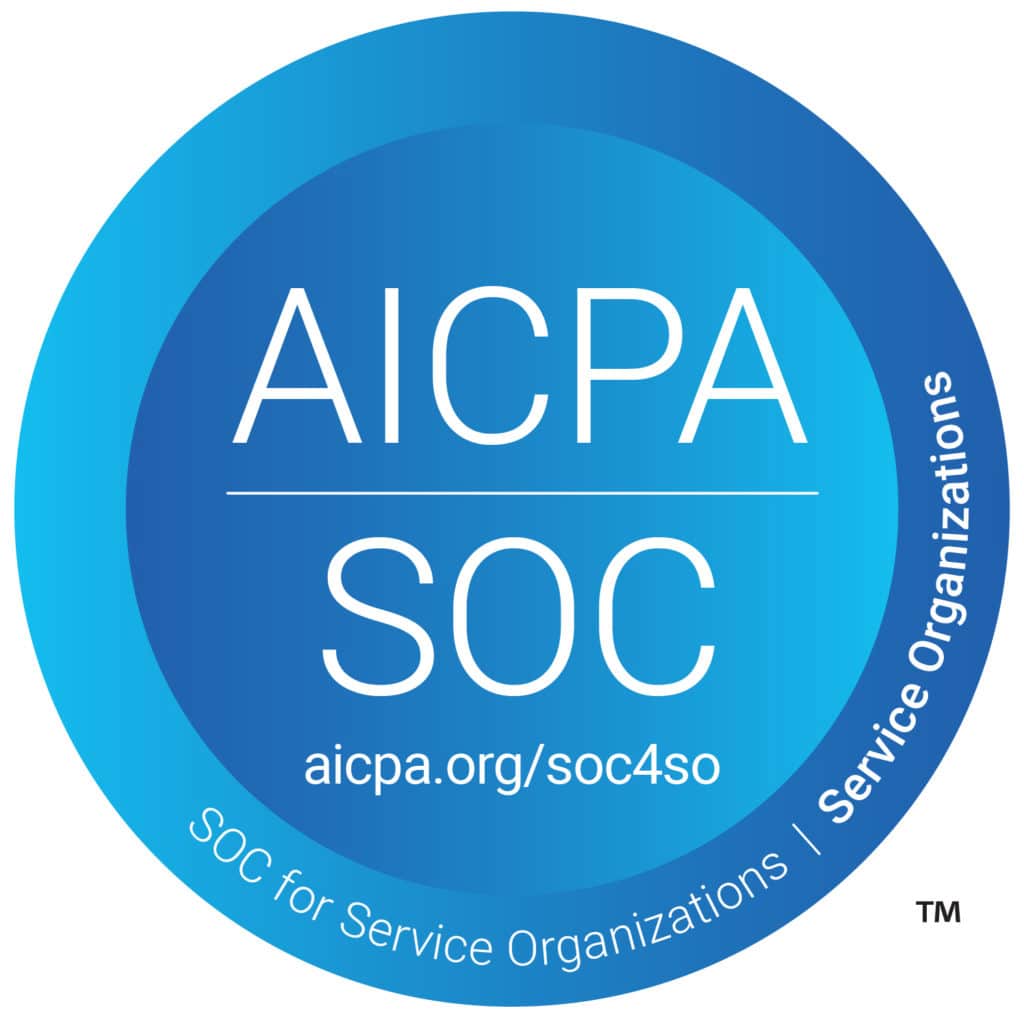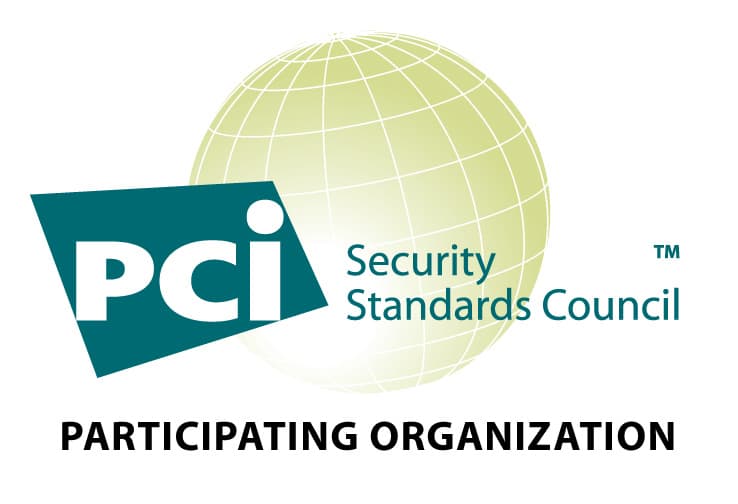When it comes to customer trust and loyalty, data security is an important building block. Depending on the size of your business, there are different levels of information security that are required to prevent breaches of sensitive information such as banking information, social security numbers, names and addresses.
In 2020 alone, there were over 100 data breaches affecting over 155 million people in the United States (Statista). The top two industry benchmarks for data security in the U.S. are the Payment Card Industry Data Security Standards (PCI DSS) certification, and System and Organization Controls (SOC). In addition to the U.S. frameworks, the General Data Protection Regulation (GDPR) is the most restrictive framework worldwide, protecting organizations in the European Union.
If you are wondering how PCI DSS, SOC and GDPR are connected, let us explain.
PCI: What it does and why it’s important
PCI DSS is a set of operational and technical requirements established by the Payment Card Industry to help secure payment data within organizations that accept or process card payment transactions (PCI security standards). PCI DSS is a contractual agreement between organizations, their merchant bank(s) and the issuing card brands. The framework and accompanying guidance documents assist organizations in becoming and re-attesting for compliance if they accept credit or debit card payments for goods/services. To achieve and maintain PCI compliance, organizations must implement and continuously validate their adherence to the framework’s requirements. Validations must be conducted annually on the anniversary of the last passing PCI DSS compliance audit.
The goals of PCI DSS compliance are as follows: build and maintain a secure network, protect cardholder data, maintain a vulnerability management program, implement strong access control measures, regularly monitor and test in scope networks, and maintain an information security policy. As part of meeting these goals, an organization’s annual validation may include an inspection and validation of compliance by an independent Quality Security Assessor. The validation of operational and technical requirements outlined in the PCI DSS framework is known as a Report of Compliance. This helps to ensure that an organization’s people, processes, and technology are aligned to protect customers’ payment data against potential exposures or card data breaches.
Components of SOC 2 and how it’s different than PCI DSS
System and Organization Controls, SOC, is an audit framework based on the Trust Services Criteria that are used to measure the effectiveness of organizations’ overall security controls. While similar control requirements exist as part of PCI DSS, the focus of a SOC 2 audit is overall security, availability, processing integrity, confidentiality and privacy of an organization’s systems and data. PCI DSS is solely focused on payment card data.
For an organization to become SOC 2 certified, an extensive security audit is conducted by an independent firm of certified SOC auditors that is recognized by the American Institute of CPAs. A SOC 2 audit focuses on organizational security such as a safe operating environment and protecting the interests of an organization.
There are two types of SOC 2 audits. The first is a review of existing security controls and design (SOC 2 Type 1). The second (SOC 2 Type 2) is an evaluation and validation of controls over an extended period, typically between 6 to 12 months. Different from a SOC 1 audit, which is surrounding financial processes and controls, a SOC 2 audit is not required under a compliance framework, making it optional.
“As an organization grows, both organically and inorganically, its security and compliance responsibilities also grow,” said Bill Hanning, chief security officer at Groups360. “We continuously audit ourselves to ensure that what we are doing is what is expected, what is required, that we do it ethically and that we can we provide proof if requested.”
General Data Protection Regulation and how it works for U.S.-based organizations
If you are a United States-based organization that wants to conduct business in the European Union, you are required to adhere to GDPR. If you are unfamiliar with what GDPR is and why you must follow regulations established for countries in the EU, let’s get you up to speed.
GDPR stands for the General Data Protection Regulation and is an international law formally enacted by member states of the European Union. The framework contains some of the most restrictive compliance and security requirements to date. GDPR was designed to protect the data of organizations in the European Economic Area and its private citizens, but compliance with the law is not limited to those organizations or individuals.
As an American-based company, adherence to these regulations is required to work with EU-based organizations. GDPR enforces the required amount of protection that an organization must apply to safeguard against potential data breaches or unauthorized disclosures through security and privacy components. Some of the 10 key principles of GDPR that all organizations must comply with are data minimalization, accuracy and confidentiality. Failure to ensure compliance with any of the 10 principles can result in penalties or fines up to 20 million euros or 4 percent of the total global turnover of the preceding fiscal year, whichever is higher (GDPR-info).
What does this mean for you as a business?
Implementing and following established security and compliance frameworks fosters trust and loyalty with consumers, such as event planners and attendees. When a company or hotel presents strong boundaries and resistance to potential cyber threats, it shows commitment to its clients. As a hotelier, you don’t want to break the trust of your event or meeting planners. Instead, you want to give them more reasons to come back in the future!
Compliance with data security frameworks can reduce exposure risks for a hotel and guests, decrease potential penalties or fines for non-compliance and ensure the reputation of the organization is maintained. In today’s world, bank cards are more frequently used as a form of payment over cash – noncompliance could be detrimental to your hotel’s success.
The benefits of being PCI, SOC, and GDPR compliant
When an organization is compliant with PCI, SOC and GDPR, it stands apart from its competitors. To be successful and competitive as a business, data security is a must. Guests will become aware of the value placed on the protection of their personal information, which builds trust between a company, such as a hotel, and a consumer, like event planners. Without data security, you risk losing clients’ trust and the credibility of your organization – resulting in a loss of business.
Groups360 goes above and beyond to ensure the confidentiality, integrity, and availability of the data it receives and maintains from its clients.
As Groups360 continues to engage with clients across the globe, benchmarking ourselves against the most stringent of security and compliance requirements shows our commitment to our client’s security. This sets us apart from other platforms, opening us up to greater relationships and a larger search base for clients. Groups360 is committed to doing all it can to ensure that our customers’ information, both during and after transactions are completed, remains safe and secure, no matter where they are in the world.
Make sure you consult a professional who is licensed or knowledgeable in PCI DSS, SOC or GDPR. Users should be aware that the information presented does not constitute legal advice and the creator will not be held accountable for any legal actions the reader may take.




